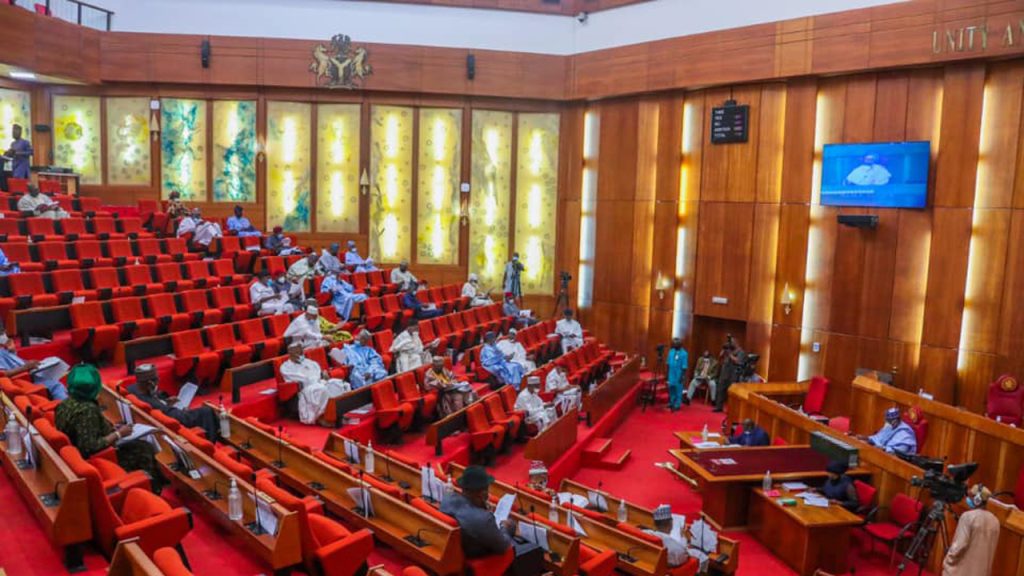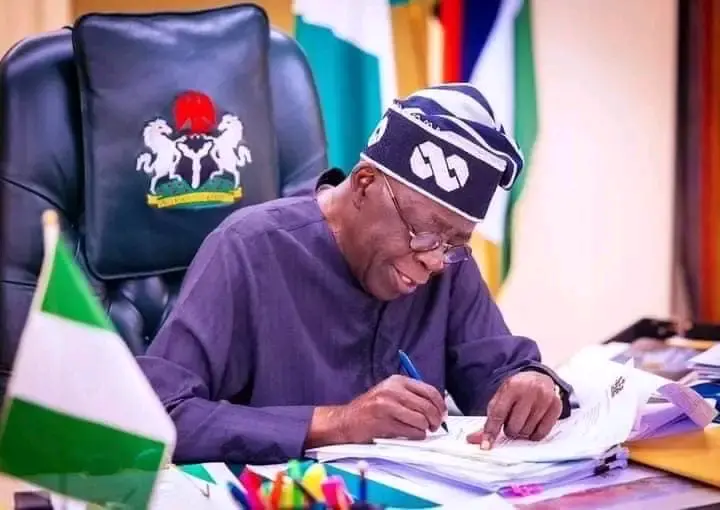President Bola Tinubu has formally requested the approval of a new $2.2 billion external borrowing plan to help finance the deficit in Nigeria’s 2024 budget. The appeal, conveyed in a letter to the National Assembly, underscores the administration’s strategy to address the N9.7 trillion budget shortfall while laying the groundwork for fiscal policies over the next three years.
The request was presented during a House of Representatives plenary session on Tuesday, where Speaker Tajudeen Abbas read the President’s letter. Tinubu outlined the need for this external loan to fulfill commitments within the 2024 Appropriation Act.
In the letter, Tinubu stated:
“Request for the resolution of the National Assembly for the implementation of the new external borrowing of N1,767,102,179.00, approximately $2.209 billion, already enshrined in the 2024 Appropriation Act.”

The proposed borrowing, consisting of a $1.7 billion Eurobond and $500 million in Sukuk financing, forms part of the government’s strategy to bridge the budgetary gap. According to Tinubu, these funds are essential for maintaining economic stability and achieving the administration’s development goals.
Alongside the borrowing request, the President also forwarded the 2025–2027 Medium-Term Expenditure Framework (MTEF) and the Fiscal Strategy Paper (FSP) to the National Assembly for approval. These documents, approved by the Federal Executive Council on November 10, 2024, serve as the foundation for Nigeria’s fiscal policies and priorities over the next three years.
READ ALSO: Japan and China Slash U.S. Treasury Holdings Amid Rising Economic
In his submission, Tinubu emphasized the urgency of legislative action:
“The Senate is invited to note that, as the 2025 budget of the Federal Government of Nigeria will be prepared based on the parameters and fiscal assumptions of the approved 2025–2027 MTEF and FSP, it is imperative to seek the National Assembly’s expeditious legislative action in this submission.”
In addition to fiscal measures, the President proposed amendments to the National Social Investment Programme Establishment Bill. This amendment seeks to make the social register the primary tool for implementing federal social welfare programs. The move aims to enhance transparency and efficiency in the delivery of social assistance to vulnerable populations.

The $2.2 billion loan is part of a broader strategy to manage the projected N9.7 trillion deficit in the 2024 budget. Tinubu’s administration plans to combine domestic borrowing with external financing mechanisms to address the shortfall. This dual approach is designed to balance immediate fiscal needs with long-term economic growth.
The budget deficit has been a recurring challenge for Nigeria, driven by factors such as fluctuating oil revenues, rising public expenditures, and limited revenue generation. Tinubu’s government has emphasized the importance of sustainable financing solutions to address these challenges while pursuing economic reforms.
READ ALSO: Kremlin Revisits Nuclear Doctrine Following U.S. Decision to Arm Ukraine with Long-Range Missiles
The President’s requests for borrowing approval and legislative action on the MTEF and FSP signal a proactive approach to fiscal management. However, these proposals are likely to generate significant debate in the National Assembly, with lawmakers scrutinizing the borrowing plan’s potential impact on Nigeria’s debt sustainability.
Critics have expressed concerns about Nigeria’s rising debt levels, warning of the long-term risks associated with heavy reliance on external loans. Proponents, however, argue that well-targeted borrowing can provide the necessary capital for critical infrastructure projects and social programs, thereby fostering economic growth.

President Tinubu’s appeal to the National Assembly reflects his administration’s efforts to address fiscal challenges while laying the foundation for long-term economic stability. The approval of the $2.2 billion external borrowing plan, along with the 2025–2027 MTEF and FSP, will play a crucial role in shaping Nigeria’s fiscal trajectory in the coming years.
As the National Assembly deliberates on these proposals, the outcomes will reveal the government’s ability to balance fiscal discipline with the need for economic growth and social development.

